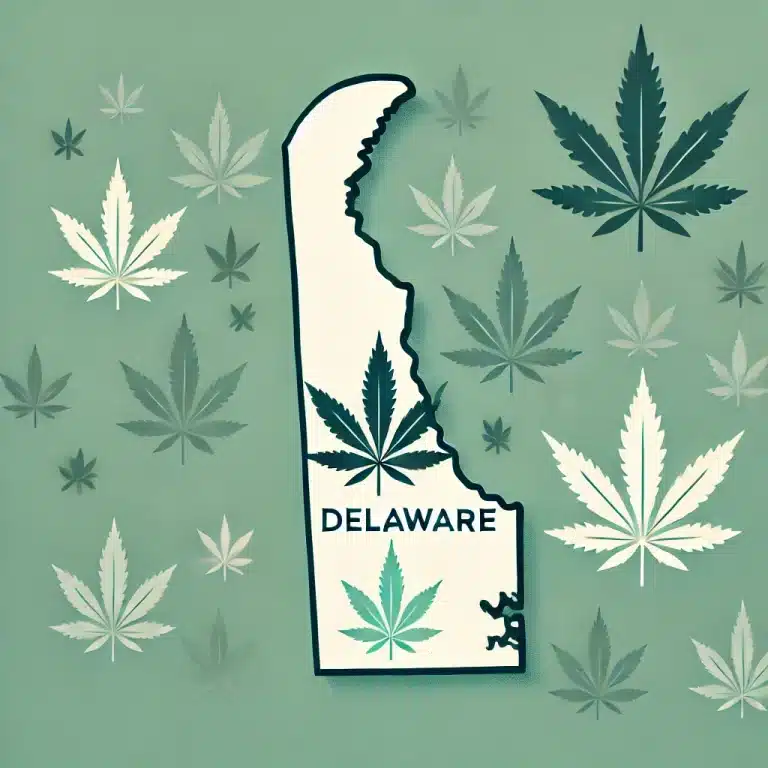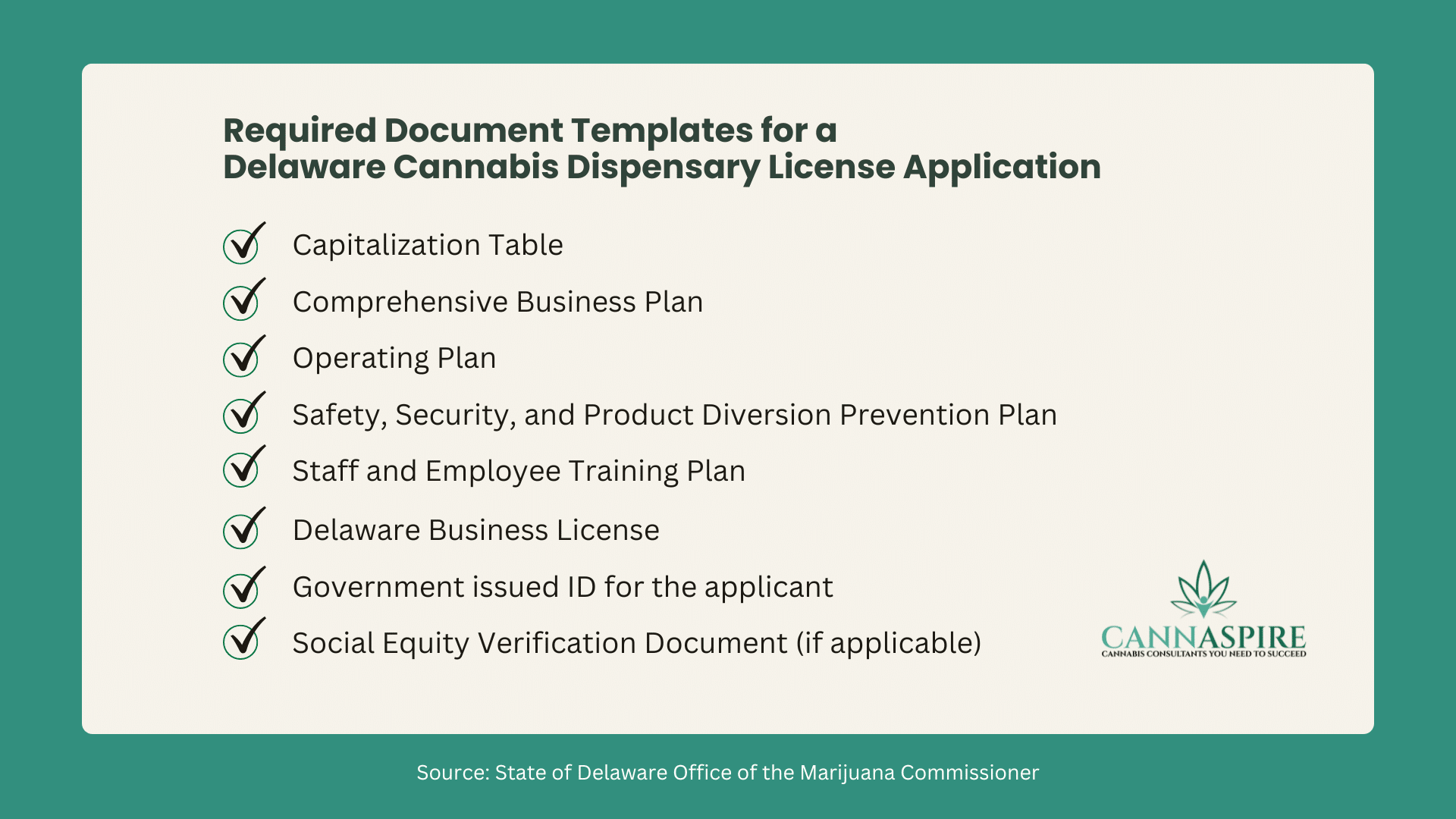How To Open A Dispensary In New York (2025 Guide)
How To Open A Dispensary In New York (2025 Guide) Key Takeaways Medical Marijuana in New York: Legal since 2014, New York’s medical marijuana program allows patients with qualifying conditions
Minnesota Cannabis License Approved? Get Expert Help to Launch Your Operation.

Medical Marijuana in Delaware: Delaware legalized medical marijuana in 2011, allowing patients with qualifying conditions to obtain cannabis through state-licensed compassion centers.
Recreational Marijuana in Delaware: Recreational marijuana was legalized in 2023, permitting adults 21 and older to possess and use cannabis. Sales officially began on August 1, 2025.
Not Accepting Licenses: Delaware accepted online applications for recreational cannabis business licenses from August 19 until September 30, 2024.
License Application and Costs: The cost to obtain a dispensary license in Delaware varies by business type, with a standard retail dispensary requiring a $5,000 application fee and a $10,000 license fee, while a Social Equity program dispensary pays a $1,000 application fee and a $4,000 license fee.
Market Opportunity: Delaware’s recreational cannabis industry is projected to be valued at $215 million and is expected to create at least 1,400 jobs within its first five years, in addition to generating significant tax revenue.
Looking for information on how to open a dispensary in Delaware? This page provides the latest news and updates on the state’s cannabis industry, offering key insights into what’s expected in the coming months.
Is weed legal in Delaware in 2024? Yes, adult-use recreational cannabis in the state is legal. Here are some key points about the current weed laws in Delaware:
The Delaware Office of the Auditor of Accounts projects the state’s recreational cannabis market to reach $215 million. Along with tax revenue generation, the market is expected to create over 1,400 jobs within its first five years.
Delaware legalized medical marijuana on May 13, 2011, through the Medical Marijuana Act (SB 17). Patients diagnosed with debilitating conditions such as terminal illness, cancer, HIV, anxiety, and decompensated cirrhosis may acquire a medical marijuana card in Delaware to be able to possess up to six ounces of marijuana purchased from a licensed dispensary. The state’s medical marijuana program is tightly regulated, with non-profit compassion centers responsible for distribution.
The first compassion center, First State Compassion Center, has been operational since June 26, 2015. In December 2015, the Department of Health began accepting proposals for new compassion centers, expanding access to medical marijuana in Kent and Sussex counties. As of now, Delaware has seven compassion centers operating throughout the state.
In Delaware, the cost of opening a dispensary includes a $5,000 non-refundable application fee paid to the Division of Public Health, Medical Marijuana Program at the time of application. Successful applicants must pay $40,000 for certification and a bi-annual license fee.
The Department will only accept new applicants for a Compassion Center License when applications are open. At this time, applications are no longer being accepted. When applications are once again accepted, we will provide an update to this section.
On April 23, 2023, Delaware officially legalized recreational marijuana, joining a growing number of states embracing cannabis reform. The legalization was achieved through House Bill 1 and House Bill 2, which set the stage for both personal use and a regulated market.
House Bill 1 allows individuals aged 21 and older to:
House Bill 2 establishes the framework for a regulated cannabis market:
The Office of the Marijuana Commissioner (OMC) in Delaware will issue a limited number of licenses for various types of marijuana businesses. The types of licenses include:
License Type | Total Open Licenses | Total Social Equity Licenses | Total Microbusiness Licenses |
Marijuana Cultivation Facility (Canopy ≤ 2,500 sq. ft. indoor or ≤ 1 acre outdoor) | N/A | 10 | 20 |
Marijuana Cultivation Facility (Canopy > 2,500 sq. ft. indoor or > 1 acre outdoor) | 20 | 10 | N/A |
Marijuana Product Manufacturing Licenses | 10 | 10 | 10 |
Retail Marijuana Store | 15 | 15 | N/A |
Marijuana Testing Facility | 3 | 2 | N/A |
This license is issued for the following types of facilities:
It is not specifically designated as a Social Equity or Microbusiness license.
This license is designed to support individuals from communities disproportionately affected by previous marijuana laws. To qualify for a cannabis social equity assistance in Delaware, applicants must meet the following criteria:
Aimed at small-scale operations, the Microbusiness license is for businesses planning to employ no more than 10 employees. Additionally, the facility must have a marijuana plant grow canopy area of no more than 2,500 square feet, making it ideal for smaller, more localized operations.
On October 24, 2024, Delaware awarded its first adult-use cannabis manufacturing and cultivation licenses through a state-run lottery, moving forward even as some local jurisdictions remain unprepared. The Office of the Marijuana Commission held a Facebook Live event where 727 of over 1,200 applicants qualified, using random-number software under third-party oversight across 21 drawings for Delaware’s counties. All license categories except retail were allocated; due to high demand, retail permits will be awarded separately in December, with over 800 applications for just 30 permits.
Applicants seeking marijuana business licenses in Delaware must meet the following minimum requirements:
Comprehensive Business Plan:
Applicants must submit a detailed business plan that includes:
Product Diversion Prevention, Safety and Security Plan:
Operations, Training, and Staffing Plans:
Social Responsibility Plan:
Criminal, Civil, or Regulatory History:
Capitalization Table:
Additional Requirements for Certain License Types:

The cost to obtain a Delaware dispensary license varies depending on the business type. For a standard retail dispensary (Open), the non-refundable application fee is $5,000, and the license cost is $10,000, bringing the total to $15,000. For a retail dispensary Social Equity applicant, the fee is reduced to $1,000, with a license cost of $4,000, making the total cost $5,000.
License Type | Application Fee | License Cost |
Marijuana Cultivation Facility (Open) | ₱5,000.00 | $2,500 – $10,000 depending on Cultivation Size Tiers |
Marijuana Cultivation Facility (Social Equity) | ₱1,000.00 | 40% of open license |
Marijuana Cultivation Facility (Microbusiness) | ₱3,000.00 | 40% of open license |
Marijuana Testing Facility (Open) | ₱5,000.00 | ₱10,000.00 |
Marijuana Testing Facility (Social Equity) | ₱1,000.00 | ₱4,000.00 |
Marijuana Product Manufacturing Facility (Open) | ₱5,000.00 | 10,000 |
Marijuana Product Manufacturing Facility (Social Equity) | ₱1,000.00 | $4,000 |
Marijuana Product Manufacturing Facility (Microbusiness) | ₱3,000.00 | $4,000 |
We will keep you informed about all important updates on how to open a dispensary in Delaware as the state continues to build its cannabis program. As new developments arise that may affect when and how marijuana legalization occurs, joining our Delaware Cannabis Mailing List (below) ensures you’ll stay up to date on hard-to-find legalization news and updates. This includes, but is not limited to, the following:
Complete the information below to get access!
How To Open A Dispensary In New York (2025 Guide) Key Takeaways Medical Marijuana in New York: Legal since 2014, New York’s medical marijuana program allows patients with qualifying conditions
How To Open a Dispensary in Kentucky Key Takeaways Medical Marijuana in Kentucky: Kentucky has legalized medical marijuana for patients with qualifying conditions. Recreational Marijuana in Kentucky: Recreational marijuana remains
How to Open a Dispensary in Delaware Delaware Key Takeaways Medical Marijuana in Delaware: Delaware legalized medical marijuana in 2011, allowing patients with qualifying conditions to obtain cannabis through state-licensed